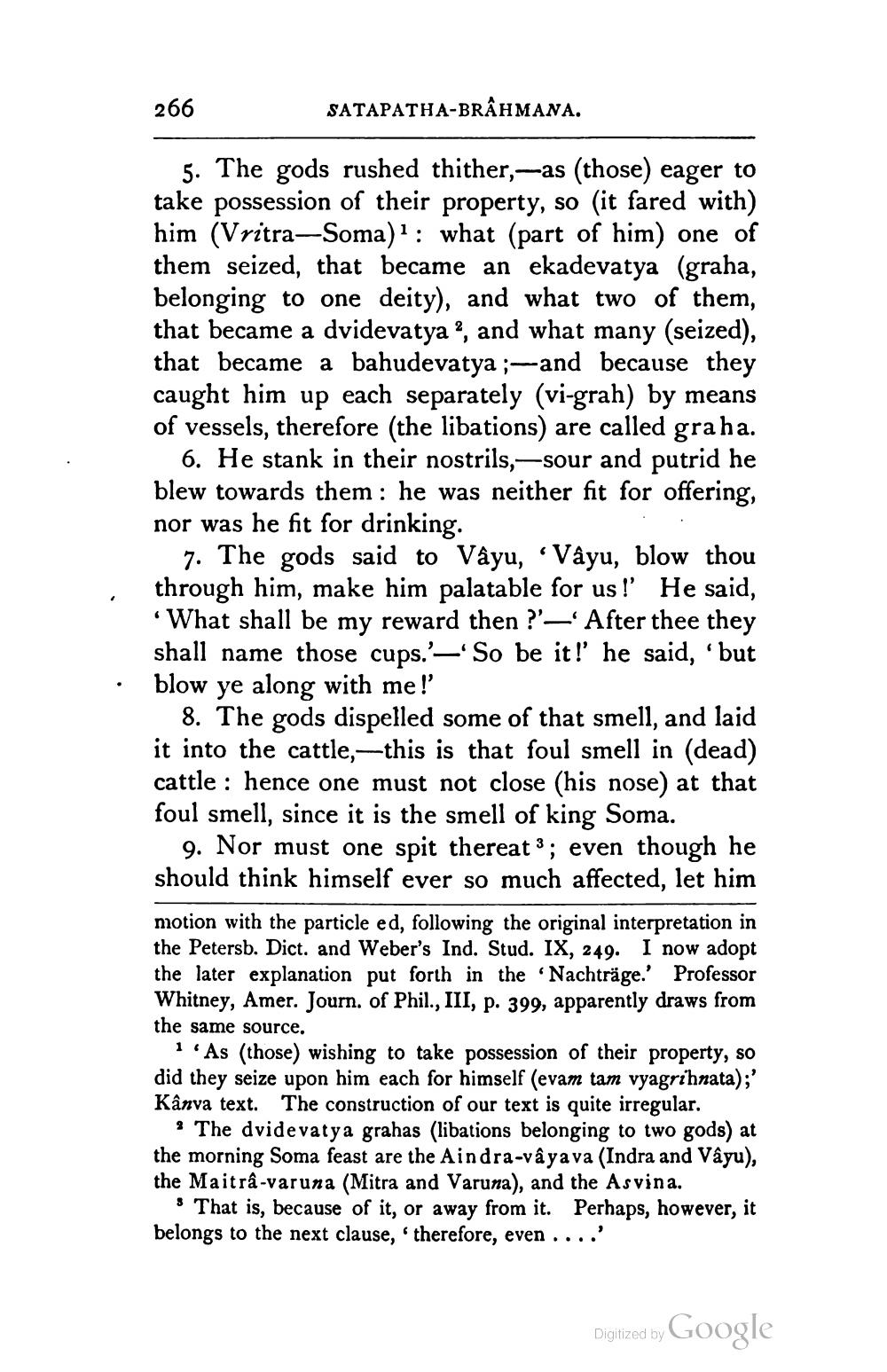________________
266
SATAPATHA-BRAHMANA.
5. The gods rushed thither,-as (those) eager to take possession of their property, so it fared with) him (Vritra-Soma)?: what (part of him) one of them seized, that became an ekadevatya (graha, belonging to one deity), and what two of them, that became a dvidevatya’, and what many (seized), that became a bahudevatya ;--and because they caught him up each separately (vi-grah) by means of vessels, therefore (the libations) are called graha.
6. He stank in their nostrils,—sour and putrid he blew towards them: he was neither fit for offering, nor was he fit for drinking.
7. The gods said to Vậyu, “Vậyu, blow thou through him, make him palatable for us !' He said,
What shall be my reward then ?'—' After thee they shall name those cups.'—'So be it!' he said, 'but blow ye along with me!'
8. The gods dispelled some of that smell, and laid it into the cattle, this is that foul smell in (dead) cattle : hence one must not close (his nose) at that foul smell, since it is the smell of king Soma.
9. Nor must one spit thereat 3; even though he should think himself ever so much affected, let him motion with the particle ed, following the original interpretation in the Petersb. Dict. and Weber's Ind. Stud. IX, 249. I now adopt the later explanation put forth in the Nachträge.' Professor Whitney, Amer. Journ. of Phil., III, p. 399, apparently draws from the same source,
1 As (those) wishing to take possession of their property, so did they seize upon him each for himself (evam tam vyagrihnata);' Kânva text. The construction of our text is quite irregular.
The dvidevaty a grahas (libations belonging to two gods) at the morning Soma feast are the Aindra-vâya va (Indra and Väyu), the Maitra-varuna (Mitra and Varuna), and the Asvina.
* That is, because of it, or away from it. Perhaps, however, it belongs to the next clause, therefore, even ....'
Digitized by Google




